Reverse Culture Shock: Visiting Netherlands after 5 years
7 minute read

I've lived in Korea for almost 9 years now, on and off since 2011, when I first came here as an exchange student. In March 2020, I moved from the Netherlands to Busan, just before Covid-19 locked the world down. Due to Corona, and life happening, I didn't go abroad for almost 5 years. This summer, however, I wanted my mom to see her 2-year-old grandson, so my family and I went to the Netherlands. Let me tell you, the shock was real. It wasn't my first reverse culture shock, but it's funny how some things were still surprising.
What is a Reverse Culture Shock
Reverse culture shock, also known as re-entry culture shock, happens when someone returns to their home country after living abroad for an extended period. The familiarity of home can feel strange, and adjusting to old norms and routines can be challenging. This experience is common among expats, students, and professionals who spend significant time in different cultural settings. This is my experience as a Dutch expat in particular. It might be different for your own country, of course.
Public Toilet Predicament
The prevalence of public toilets in Korea is amazing. I noticed it right away after landing at Schiphol. Even though there are free public toilets at the airport, there are definitely fewer of them. After taking a well-deserved leak in a Dutch urinal, I realized that they are objectively better than Korean urinals. Why are Korean urinals often built all the way to the ground? That just increases splash damage. Step up your game, Korea. When we went shopping the next day in my hometown, there were no public toilets to be found. There was a toilet in one of the shops we visited, but we had to pay 50 euro cents to use it. Paying to pee... It irks me now. I got spoiled in Korea. Oh, and the Netherlands doesn't use bidets. I miss my bidet so much. My butthole is not made for the Netherlands anymore. Here's a tip: bring wet tissue with you wherever you go.. and 50 euro cents.
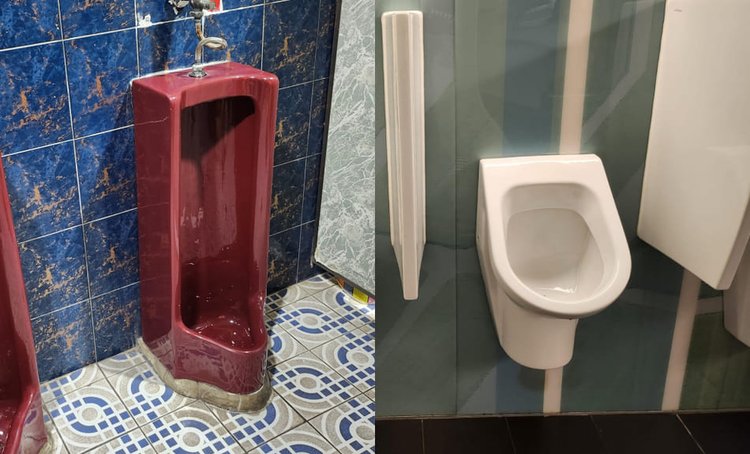
On the other hand, public trash cans are everywhere. And I really mean everywhere. You never have to walk around with trash in your hands or pockets for longer than 3 minutes, it seems. I have to admit, the Netherlands does trash well. Where I’m staying, every house has 3 big garbage cans in their yard: one for household trash, one for garden and food waste, and one for paper. They bring most plastic bottles and cans back to the supermarket they got them from. They pay a deposit when buying them and get the money back when they return them. I do think Korea does recycling a bit better. I got used to cleaning and recycling all the different containers and vinyl. It’s weird to throw a lot in just one bin here in the Netherlands.
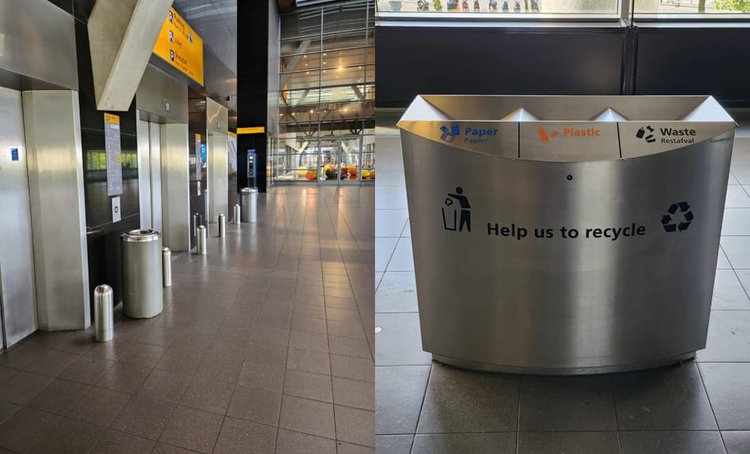
My Dutch Driving Experience
I am Dutch, but I’m a Korean driver. I got my driver’s license in Busan. The stress and chaos of Korean traffic is my home. And as you might have read in my other article talking about Korean drivers, I don’t speak too highly of them. Even though the title might suggest otherwise.
As soon as I landed at Schiphol, I got behind the wheel of my mother's car. What a shock! Everyone is so well-behaved and calm. People are obeying traffic laws. They aren’t hugging the fast lane. They use blinkers properly. Nobody is honking constantly. Amazing.
Dutch people always have to complain, so here goes: The road from the airport to my hometown was super boring. Basically a straight shot, with some tunnels. So~ boring. Now I understand what they mean by “tunnel vision.” You never have that in Korea because you constantly have to give your full attention.
The Netherlands is also full of roundabouts. Busan has a handful of them, and Koreans use them incorrectly most of the time, but my hometown of Hellevoetsluis is full of them. Way better than an endless parade of traffic lights. Bicycles and pedestrians are King, and most of the time, they have the right of way. And Dutch people respect that. Korea would really be a better place if people followed the traffic laws. It’s changing slowly, but it has some catching up to do.
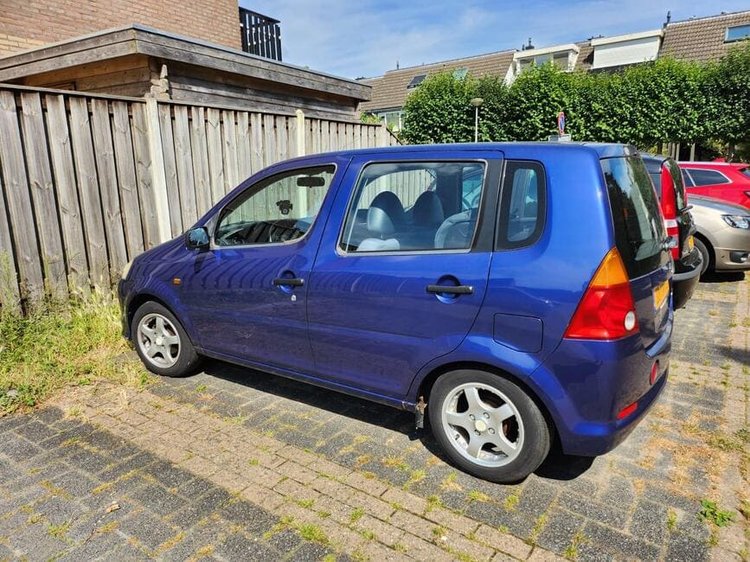
Korea is filled with a sea of black, white, and grey cars, many of them newer models. The Netherlands is like a rainbow. Different colors everywhere, old and new cars. Dutch people see a car as a way of getting you from A to B, without feeling the need to impress strangers with a car they actually can’t afford. I am currently driving my mom’s blue and purple Daihatsu, which is almost 20 years old. It drives fine, and it gets me to the gym and back home in one piece. And my son’s seat fits in the back.
(While I was writing this article during my vacation in the Netherlands, a letter arrived at my mother’s house. Apparently, on my first drive in the Netherlands, going from the airport to my hometown, I received a speeding ticket. I am truly a Korean driver.)
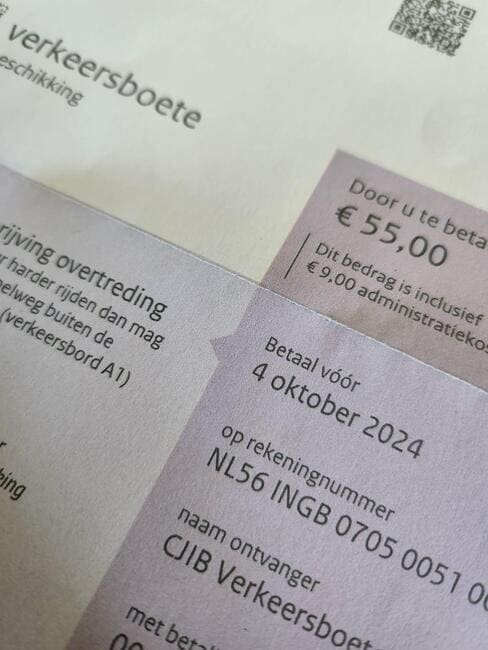
Dutch Gyms vs. Korean Gyms
Lifting weights makes the voices in my head go away. For that reason, I got my wife and me a gym membership for the duration of our vacation. I thought it would also help with the “vacation weight gain.” It didn’t help too much.
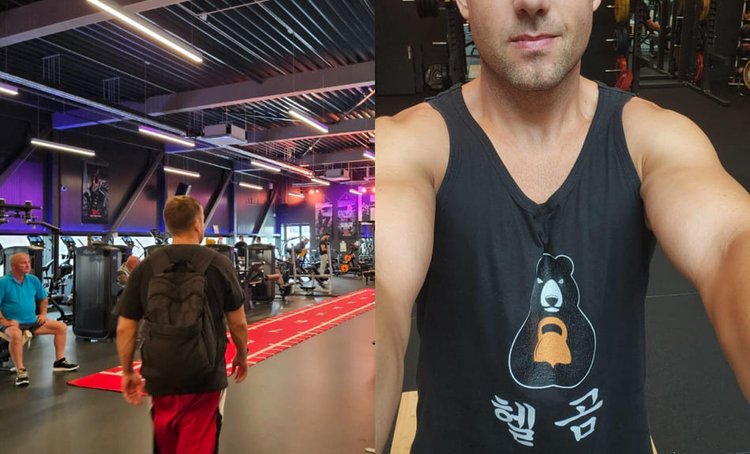
Dutch gyms are quite different from Korean gyms. Probably the best feature is that they don’t play K-pop music. The vibe at the gym I went to was great—welcoming to everyone, young and old, hardcore gym rats, and socializing grandmas. I saw women doing pull-ups all day, every day. Performance-enhancing drugs are more prevalent in the Netherlands, which ultimately translates to more bald guys with tattoos all over.
If a Korean person went to the gym in the Netherlands, they would probably be shocked that Dutch gyms don’t have 600 treadmills in them but take a more balanced approach towards strength training and cardio.
Another great thing my gym in the Netherlands offered was an unlimited coffee bar. Great quality coffee, for free. You could even get hot chocolate milk. All could be enjoyed in a nice lounge area, where you could socialize after your workout.
Food and Dining Culture
Dutch supermarkets are superior, and the best part is that they are affordable. Compared to Korea that is, because oh my God, did my mom complain a lot about the prices. I think I went to the supermarket every day, trying all the food and snacks I missed. The thing we got the most was fresh fruit. Due to Dutch agriculture and EU Free Trade Agreements, the Netherlands has great access to affordable fresh fruit of high quality. Korea being an island makes fruit immensely expensive, as we all know.
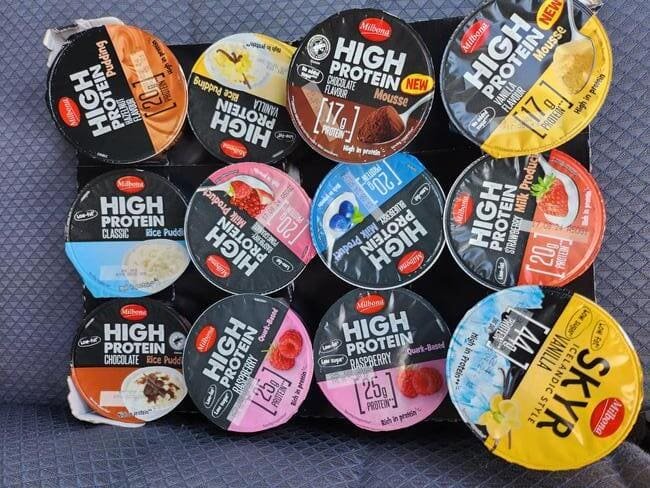
Eating out in the Netherlands, however, is super expensive most of the time. The service is basic but enough. Paying for water is normal in the Netherlands, and it also grinds my gears. Peeing and water should be free. I feel radicalized now.
After eating my fresh fruit, my pickled herring, some Dutch peanut butter, and cookies, I was really starting to miss all the side dishes Korean restaurants offer.
Social Norms and Small Talk
If you go for a walk outside, especially in a place like my hometown of Hellevoetsluis, most people will greet you on the street. Young, old, any gender or race, doesn’t matter. People greet you kindly. My wife kept asking, “Do you know those people?” I guess it’s hard to fathom if your culture doesn’t do that at all. To be honest, I kinda liked greeting random people on the street and sometimes even exchanging a few words.
However, we had a super weird encounter at the shopping center in my hometown. My wife and I were casually strolling along the shops when a random lady (RL) ran up to us, and we had the following conversation in Dutch:
RL: Hello! Is she Japanese?
Me: No, she’s not. She’s Korean.
RL: Well, I saw something on TV about Japan yesterday.
Me: Ah, okay! They are not the same, though.
RL: Did you know strawberries are really expensive in Japan?
Me: Haha, yes, I heard.
RL: Crazy. Anyway, bye!
This encounter, and another one in a store where my son said “Annyeong” to another boy, and his father said: “Say ‘Nihao.’ to him.” annoyed me a bit, but I’ll just blame it on their ignorance and lack of world knowledge.
Furthermore, I kept bowing to people automatically—when meeting them, thanking them, or giving small nods in traffic. During my vacation, fist bumps and hand signals were added to my repertoire again. Man, I quite missed the fist bumps. Now I’m back in Korea and trying to fist-bump some people here and there. Who knows? Maybe it will become a thing.
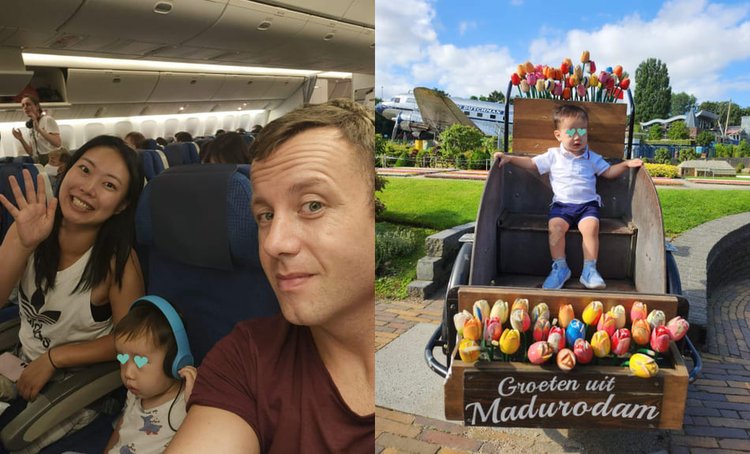
Embracing Reverse Culture Shock and Dual Cultures
I enjoyed my vacation in the Netherlands quite a bit, but it also reminded me why I moved to Korea and why I prefer it most of the time. The reverse culture shock was real, from the lack of public toilets to the calm, rule-abiding Dutch drivers. Each time I go back, I’m reminded of the little things I’ve grown accustomed to in Korea—things I didn’t even realize I’d miss until they weren’t there. But that’s the beauty of living abroad for so long: you adapt. You pick up habits and preferences from both places, creating a unique blend of cultures that shapes who you are.
I could go into depth on why I prefer living in Korea instead of the Netherlands, but I’ll save that for a later article. For now, I’ll just say this: after almost nine years in Korea, it feels like home. But a part of me will always be Dutch, and that part will always experience a little bit of shock whenever I return.

Korea expert since 2011
Related posts

I've got my driver's license in Korea. Here’s my firsthand account and analysis of why driving in Korea can be such a hair-raising experience.

Reflect on the unexpected positives of the COVID-pandemic with these 8 reasons why the crisis may have had some silver linings.



